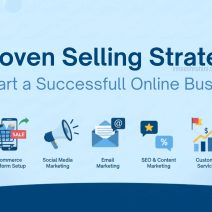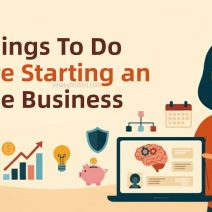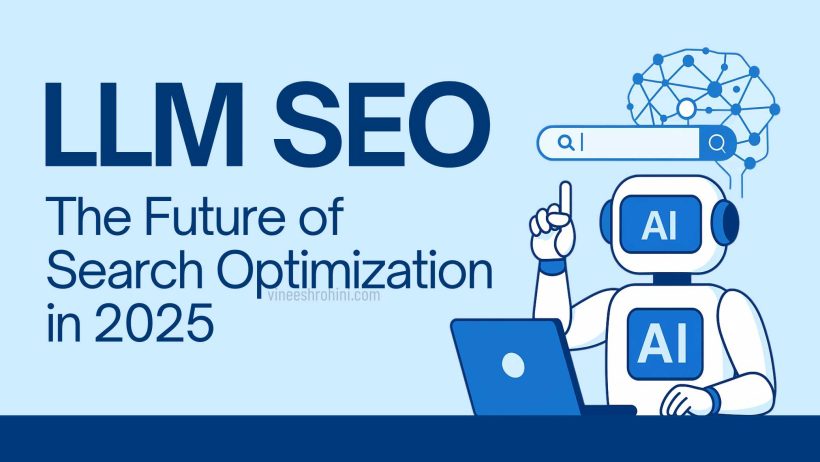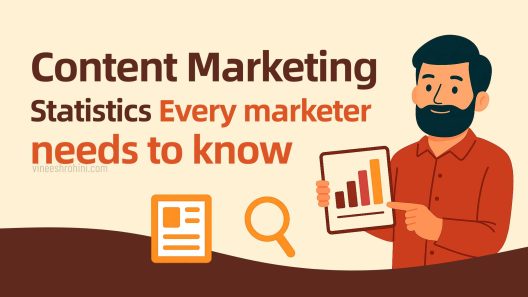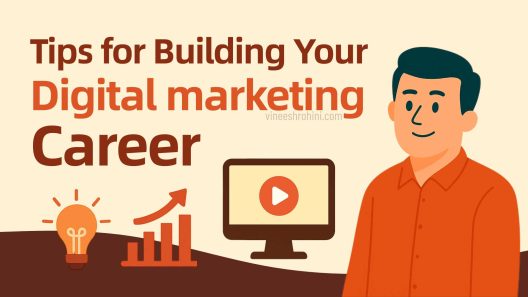LLM SEO : Search Engine Optimization has been the backbone of digital marketing for over two decades, evolving through countless changes in algorithms, user behavior, and technology. From the early days of keyword stuffing and backlink exchanges to the more sophisticated focus on user intent, authority, and semantic search, SEO has always adapted to the way people interact with information. But in 2025, the rise of Large Language Models (LLMs) is redefining the rules of the game entirely. With platforms like GPT-5, Claude, Gemini, Perplexity, and Microsoft Copilot becoming integral to how people search and consume knowledge, businesses can no longer rely on traditional search engine rankings alone.
They must prepare for a world where AI-powered answer engines deliver direct responses instead of just lists of links.
Table of Contents
This shift has created a new frontier: Large Language Model SEO (LLM SEO). Unlike traditional SEO, which focuses on optimizing for G’s algorithm, LLM SEO is about ensuring your brand, content, and products are visible in AI-generated answers. In this essay, we’ll explore what LLM SEO means, why it is critical for businesses in 2025, how it differs from traditional SEO, strategies to succeed, challenges you may face, and what the future holds.
What is LLM SEO?

LLM SEO (Large Language Model SEO) is the process of optimizing digital content and brand presence so that AI-powered conversational models like ChatGPT, Gemini, and Claude can cite, recommend, or include your information in their responses. While traditional SEO targets positions in search engine results pages (SERPs), LLM SEO focuses on answer engine optimization — making sure your brand is part of the response generated by AI systems.
For example, in traditional SEO, a user might search “best smartphones under ₹50,000 in India 2025” and browse through a ranked list of blogs. In LLM-powered search, the same user could ask an AI: “What is the best smartphone for photography under ₹50,000 in India this year?” Instead of giving ten links, the AI will summarize the best options, possibly mentioning specific models and even citing sources. If your content isn’t optimized for LLM visibility, your brand won’t appear in these curated AI-generated recommendations — even if you rank highly on G.
Also Read : How to Combine SEO and SEM for Maximum Online Visibility – Comprehensive Guide 2025
Why LLM SEO Matters in 2025
The importance of LLM SEO cannot be overstated. Businesses that rely only on traditional search are missing out on a rapidly growing share of traffic and visibility. Here’s why it matters:
- Shift in Search Behavior
More users are moving away from search engines to AI-powered assistants. People prefer asking natural, conversational questions and receiving precise answers instead of scrolling through search results. - AI-Generated Answers Dominate
LLMs provide summarized answers, not just lists. If your content isn’t structured to be recognized and referenced by these models, you’ll be invisible. - Trust and Authority
AI-generated recommendations are seen as objective and authoritative, meaning consumers are more likely to trust answers. If your brand is mentioned, it gains instant credibility. - Higher Conversion Potential
Being featured in AI-curated answers can increase brand trust, visibility, and conversions, as consumers often prefer the first trusted recommendation. - Future-Proofing Your Marketing
With G, Microsoft, and OpenAI already integrating LLM-powered results into their platforms, businesses that embrace LLM SEO now will stay ahead of the competition as the shift accelerates.
Traditional SEO vs LLM SEO
To understand the evolution, let’s compare traditional SEO with LLM SEO:
| Aspect | Traditional SEO | LLM SEO |
|---|---|---|
| Search Queries | Keywords like “best laptops 2025” | Conversational prompts like “Which is the best laptop for editing videos under $1000 in 2025?” |
| Output | Ranked list of websites | AI-generated summary or direct answer |
| User Action | Clicking through links | Consuming answer directly |
| Optimization Focus | Keywords, backlinks, on-page SEO | Context-rich content, entities, structured data |
| Goal | Rank high in SERPs | Be included in AI-generated answers |
| Metrics | Impressions, CTR, backlinks | Mentions in AI outputs, visibility in responses |
This difference highlights why businesses need to adjust strategies — ranking on G is no longer enough if AI-driven platforms don’t reference your brand.
Core Pillars of LLM SEO

To succeed in LLM SEO, you need to go beyond traditional methods. Let’s explore the pillars that drive success:
1. Conversational Content
- Write content that mimics natural conversations.
- Use Q&A formats, FAQs, and long-tail queries.
- Example: Instead of writing a flat article on “top credit cards,” create sections like: “Which credit card is best for frequent flyers in 2025?”
2. Entity Optimization
- LLMs rely on entities like brands, locations, and products.
- Ensure your brand is listed in knowledge graphs, Wikidata, and structured data.
- Example: Restaurants should ensure menu details, reviews, and locations are optimized across multiple databases.
3. Structured Data
- Use schema markup to help LLMs understand context.
- For products, include specifications, prices, and reviews in machine-readable formats.
4. Topical Authority
- Instead of scattered content, build clusters of related articles to showcase expertise.
- Example: A fitness site should cover not just workouts but also diet, supplements, and recovery.
5. Trust and Credibility
- LLMs prioritize authoritative, fact-checked sources.
- Focus on E-E-A-T (Experience, Expertise, Authoritativeness, Trustworthiness) to gain AI trust.
6. Content Distribution
- Ensure your content is widely published, cited, and shared.
- The broader your digital footprint, the more likely LLMs will recognize and include your content.
Strategies to Implement LLM SEO
- Optimize for Questions and Long-Tail Queries
- Identify how users ask real-life questions.
- Tools like AnswerThePublic and AI query simulators can help.
- Build High-Authority Content Hubs
- Create topic clusters with pillar articles linking to subtopics.
- Example: A travel website should have a main “Europe Travel Guide” linked to detailed posts about each country.
- Leverage Data and Original Research
- LLMs prefer unique, credible data. Conduct surveys, publish reports, and share case studies.
- Focus on Multi-Format Content
- Use text, video, audio, and infographics.
- LLMs pull insights from different media sources.
- Strengthen Brand Mentions
- Get cited in news articles, directories, and Wikipedia.
- Mentions across credible platforms increase your chances of being included.
- Optimize for Voice Search
- Many AI-driven queries come via voice assistants.
- Use conversational keywords and direct, short answers.
- Maintain Accuracy and Freshness
- Outdated data can reduce trust.
- Regularly update your blogs, stats, and product information.
Challenges of LLM SEO
- Opaque Algorithms
- LLMs don’t disclose how they choose sources.
- Unlike G’s ranking factors, inclusion criteria are harder to predict.
- Answer Bias
- AI may favor certain brands or sources disproportionately.
- Traffic Loss
- Direct answers mean fewer website clicks, making traffic measurement harder.
- Constant Model Updates
- AI systems update rapidly, requiring businesses to adapt continuously.
Buy Now : AIOSEO – All in One SEO Plugin For WordPress
Future of LLM SEO
Looking ahead, here’s how LLM SEO is expected to evolve:
- Answer Engines as Primary Search Tools – By 2027, most searches may happen through AI-driven assistants.
- Prompt-Based Marketing – Brands will optimize for how prompts are phrased.
- Integration with E-Commerce – AI assistants may allow direct purchases within answers.
- Personalized SEO – Responses will be tailored to user history, making personalization critical.
- Rise of Proprietary Data – Exclusive insights and unique content will be more valuable than generic information.
Points Summary
- LLM SEO is the new frontier of search marketing.
- Success depends on conversational content, structured data, entity optimization, and trust.
- Businesses must adapt to answer engines, not just search engines.
- Early adopters of LLM SEO will dominate the AI-driven search era.
Conclusion

The digital landscape is entering a new era where traditional SEO alone cannot secure visibility. With Large Language Models powering the way people search, learn, and make decisions, businesses must adapt their strategies to stay relevant. LLM SEO is not just a trend; it’s the future of digital marketing. By focusing on conversational content, authority building, structured data, and wide content distribution, brands can ensure they remain visible in AI-generated answers. In 2025 and beyond, the key to success will not be ranking first on G but being included in the trusted answers generated by AI.
Buy Now : Ready Made Digital Store with 100 Products
Disclaimer
This blog is for educational and informational purposes only. While it provides insights into LLM SEO strategies, digital marketing trends evolve quickly, and businesses should conduct their own research or consult professionals before implementing SEO changes. The author is not responsible for outcomes resulting from the application of this information.
